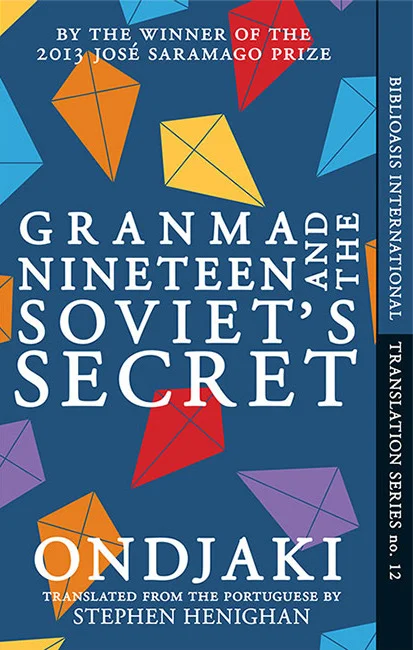Libya: Anubis (Ibrahim al-Koni, trans. William M. Hutchins)
The American University at Cairo Press (http://www.aucpress.com/) is one of the most important English-language presses in the Middle East, translating the largest quantity of Arabic literature in the world. It is a great resource for finding Arabic literature from all over the world.
Background: Libya has been ruled by many different groups, from the Islamic Caliphs in the 600s, to the Ottoman conquering in the 1550s, to the Italians from 1911-1943, then Allied occupation until 1951, and finally independence in 1951 under the constitutional and hereditary monarchy of King Idris. In 1969, rebel military under the leadership of Muammar Gaddafi launched a coup d'état against Idris. This resulted in the expulsion of the Italian and Jewish communities in Libya, but also the affirmation in equality of women, wage parity, and many other positive changes for women. By 1977, Libya had become the Great Socialist People's Libyan Arab Jamahiriya, human development significantly improved, and Libya became somewhat wealthy due to it's oil reserves. As the more recent political upheavals have been in the news (Arab Spring/2011/Civil War), the NYT or Al Jazeera are the best bets for more in-depth information.
All of that being said, this book focuses more on the Tuareg than Libya at large. The Tuareg are the largest of the Berber ethnic groups. They have traditionally lived as nomadic pastoralists in the Sahara desert, stretching from Libya, to Algeria, Niger, Mali, and Burkina Faso. Muslim and clan-based, the Tuareg are also probably most well-known for their nickname, the "blue people," due to the indigo dye they use to color their clothes (and which stains their skin). As African countries achieved independence throughout the mid 20th century, the Tuareg territory was divided among multiple countries which restricted nomadic independence (this has been a major issue for the Bedouin). There have been several Tuareg uprisings in response to frustrations with political marginalization. The Tuareg are incredibly interesting to learn more about (matrilineal! fascinating and beautiful mythology!) and I really recommend reading up on them.
This book….where to begin. Ibrahim al-Koni was born in Libya in 1948. A Tuareg, he did not learn to read or write Arabic until age 12. He later studied comparative literature at the Maxim Gorky Literature Institute in Moscow. He has written more than 80 books, which have been translated into at least 35 languages.
This book is a strange one. It tells the somewhat circular tale of a Tuareg man who leaves his tribe to find his father. Laden with magical-realist elements, it is an expansion of the Tuareg myth concerning Anubis, and the tribe’s origins. The protagonist refers to Anubis as being in the past, and yet…is Anubis? There’s a lot of lack of clarity, but the writing style of the prose is quite glorious, even if you have to suspend total comprehension in order to get through the novel. It definitely makes one want to read more of Tuareg mythology and understand their culture better. The book is broken into three parts, each of which has a chapter representing a part of the day. Finally, a collection of Tuareg sayings collected by the author is appended as well. It’s a little hard to write about this book, due to its idiosyncratic style and content. The culture of the Tuareg is presented very complexly, there is so much beauty, so much loneliness, and wisdom, and yet the treatment of women is also quite disturbing at times. I highly recommend discovering this novel for yourself and seeing what it means to you. I have a feeling my own thoughts are not terribly applicable to others.






